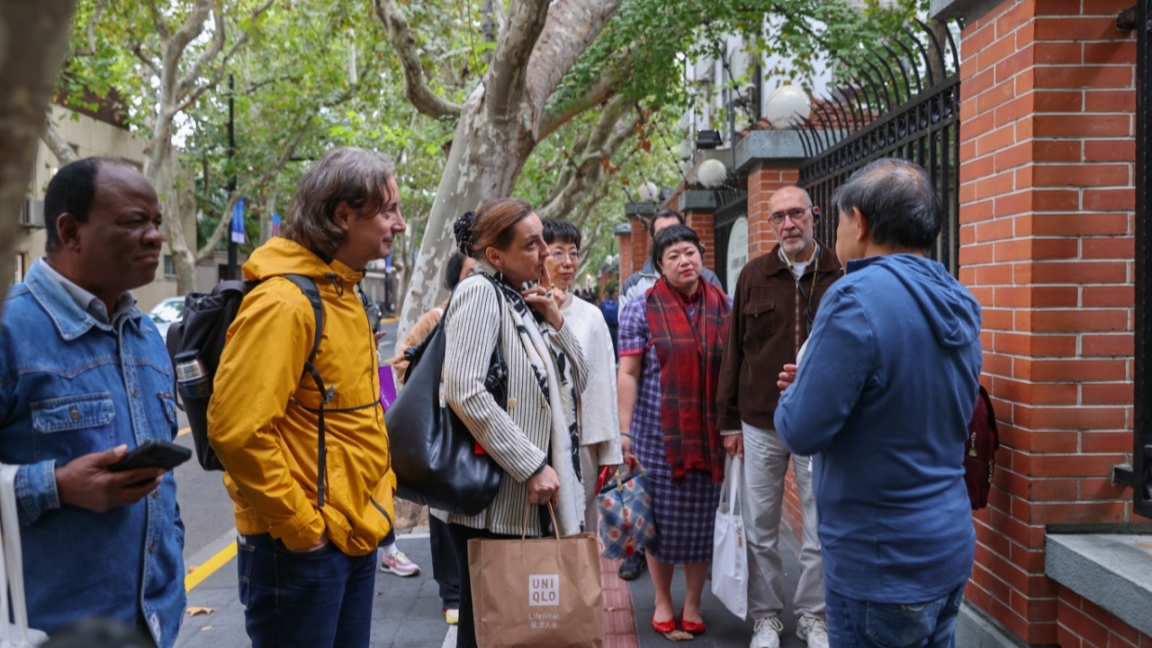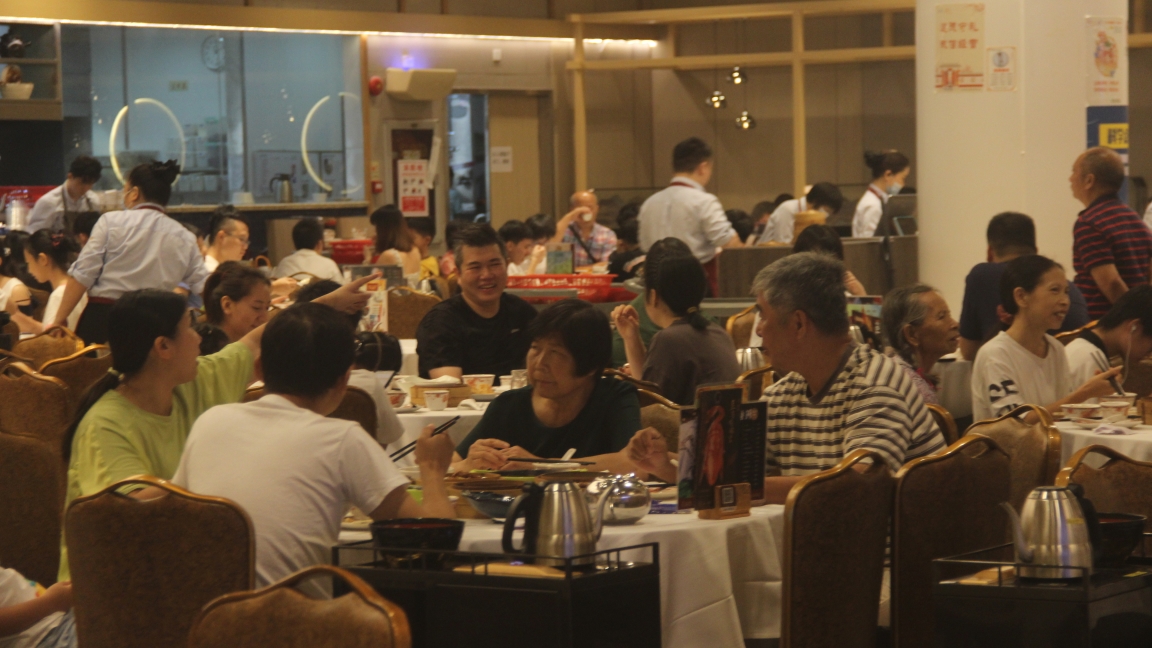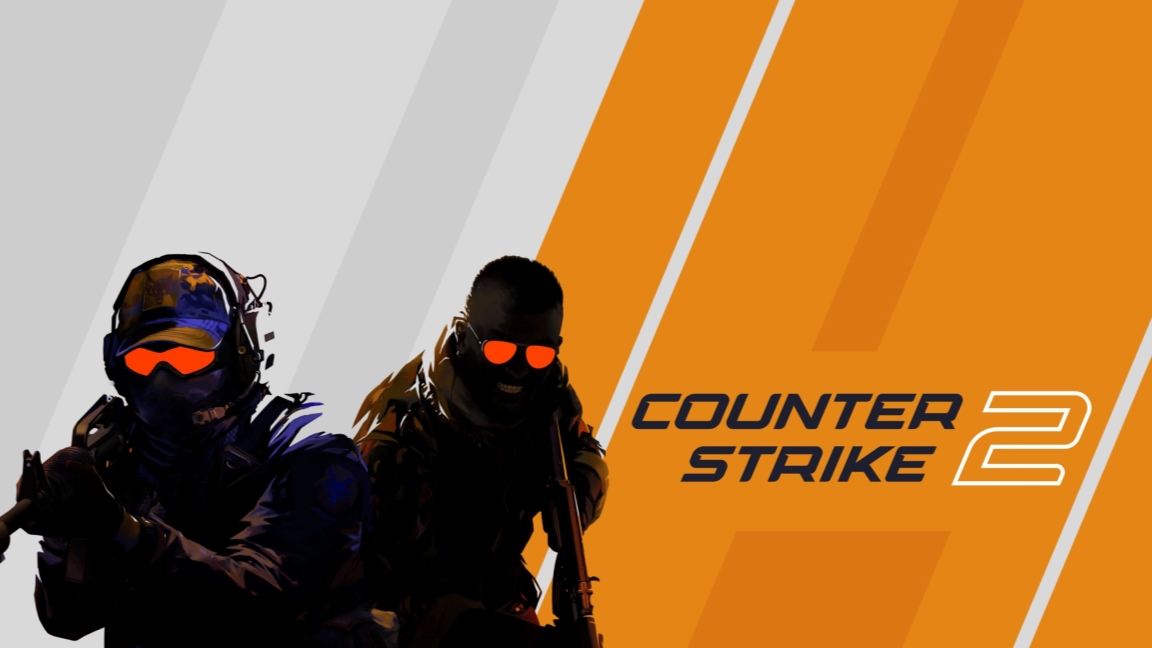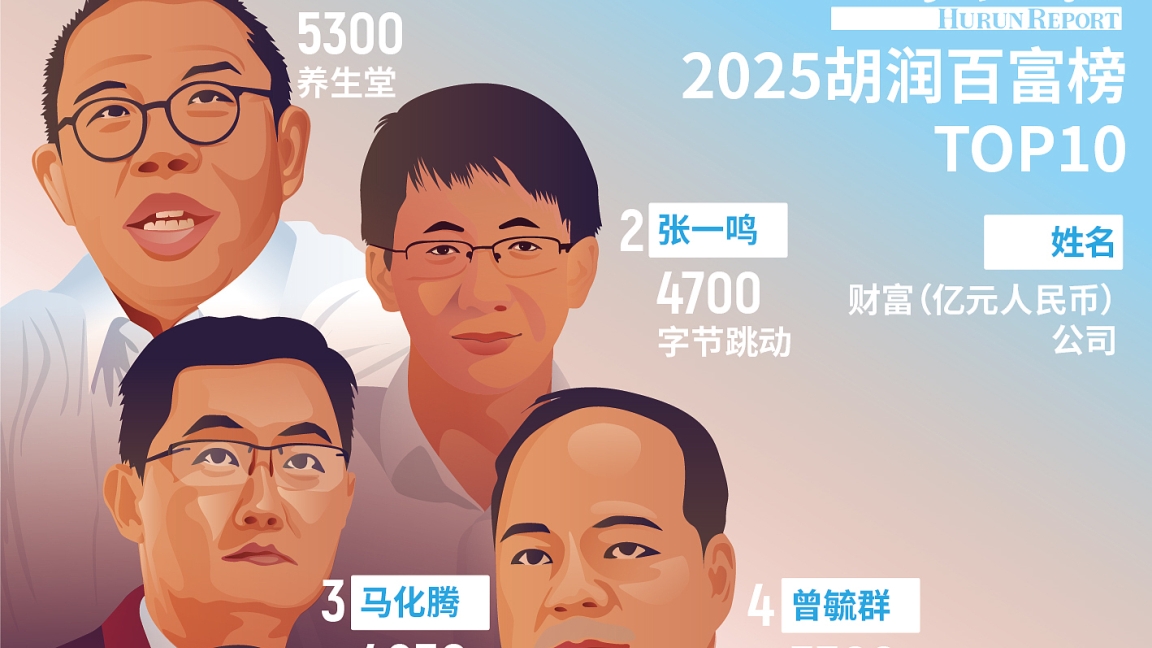Valve Update Crashes Counter-Strike 2 Virtual Economy, Wiping Billions Overnight
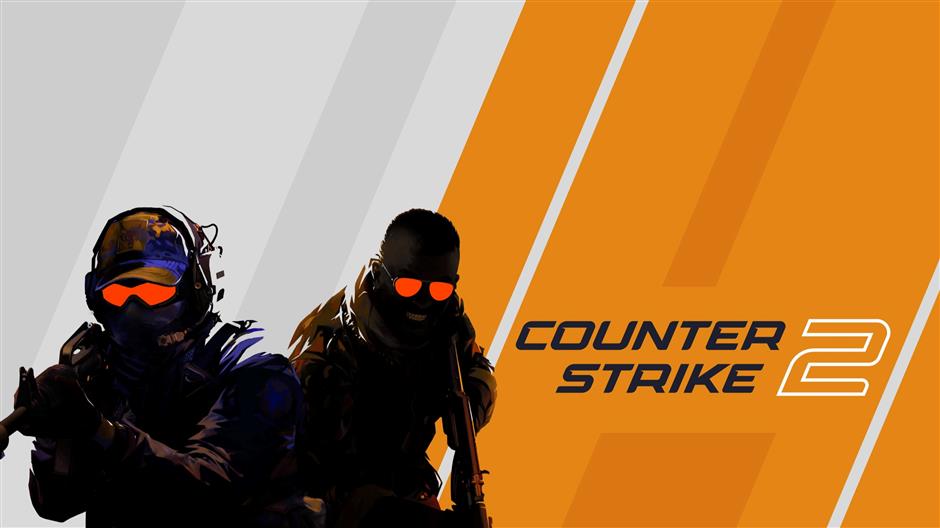
A major update to the video game Counter-Strike 2 has ignited a fire sale in its multi-billion-dollar virtual asset market, wiping out nearly a third of its total value and devastating speculators, according to a recent report by Guangzhou-based Southern Metropolis Daily.
The crash was triggered by an October 23 update from developer Valve that altered the game's economy. The total market capitalization for CS2 items plummeted from a peak of US$5.9 billion to around US$4.2 billion, more than US$1 billion in value evaporating within a day. High-end cosmetic items, once considered stable investments, saw their prices slashed by half or more.
The update introduced a new crafting system that allows players to create coveted weapons using more common components. This fundamentally undermined the value of rare skins and knives, which were previously obtainable only through a lottery-style system of opening loot boxes with miniscule odds.
"This update has fundamentally shifted the acquisition model from a lottery to a crafting system," explained a veteran player from Guangzhou. "Before the patch, you could spend tens of thousands of yuan opening thousands of cases for a miniscule chance. Now, you can essentially 'commission' these items, which drastically lowers the barrier and cost."
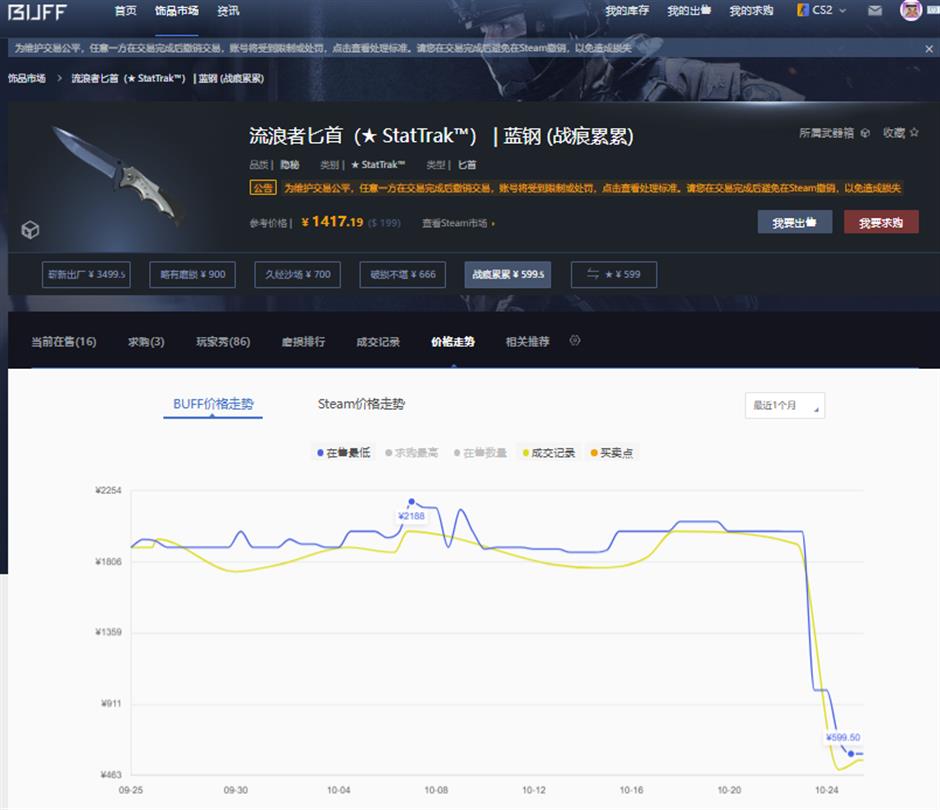
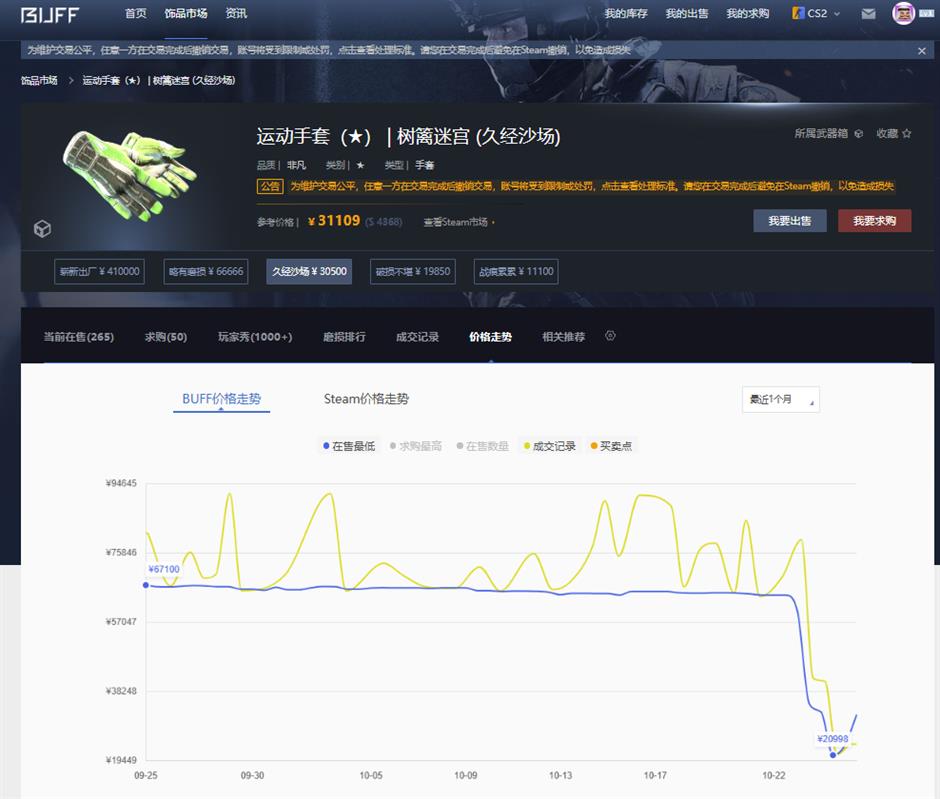
The panic was immediate and visible on major third-party trading platforms like NetEase BUFF, C5GAME, and IGXE, where price charts for rare items showed near-vertical declines.
The CS2 skin market has long functioned as a pseudo-stock exchange, with rare digital cosmetics traded as high-value assets. "People have been treating this like day-trading since around 2018," a Tianjin-based trader explained, describing a process where buyers and sellers use external platforms to coordinate trades through Valve's Steam network.
The market's accessibility attracted a broad base of investors, including university students. "The barrier to entry is low – just hundreds or thousands of yuan – and it's part of their culture," noted an editor of a popular gaming WeChat account.
However, analysts warn that the crisis exposes the inherent risks of treating virtual goods as investments. "These items have no intrinsic value-preserving attributes," said Zhang Shule, a video game industry analyst. "Their scarcity is artificially engineered by the developer. One update can instantly transform rare treasures into common commodities."




In Case You Missed It...
